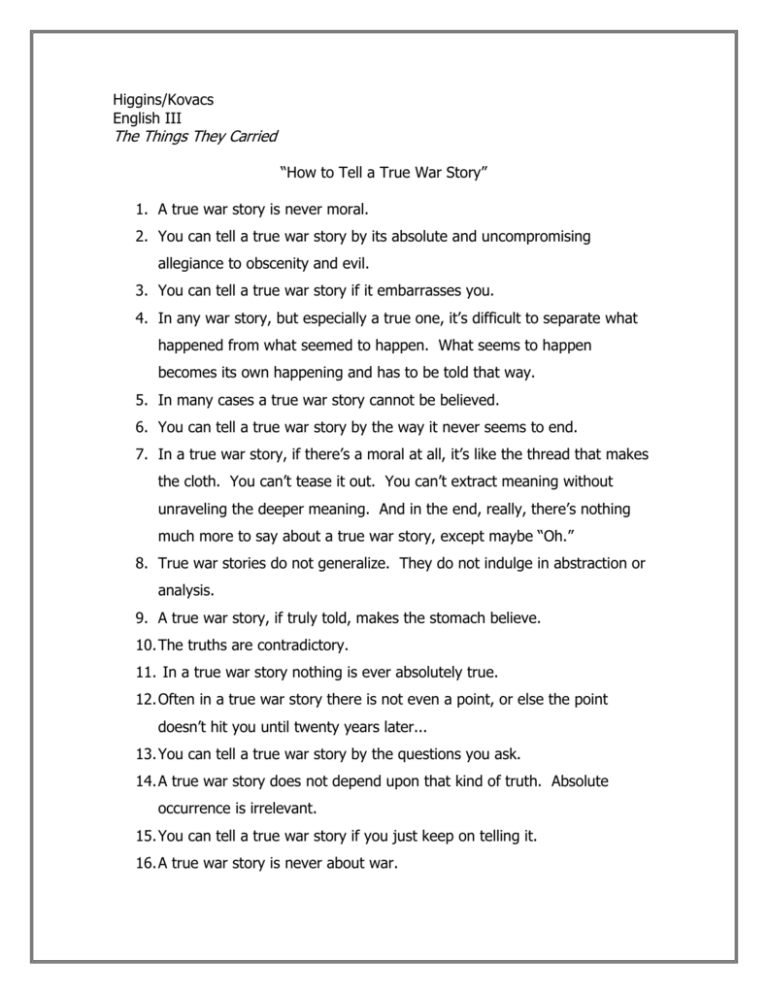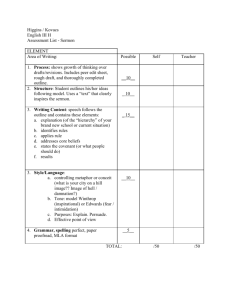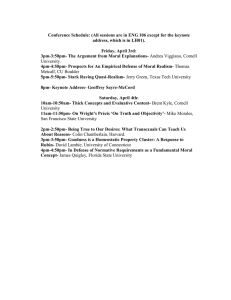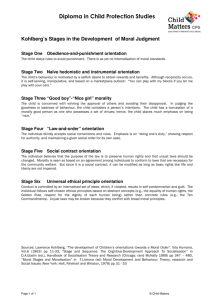True War Stories: Analysis & Characteristics
advertisement

Higgins/Kovacs English III The Things They Carried “How to Tell a True War Story” 1. A true war story is never moral. 2. You can tell a true war story by its absolute and uncompromising allegiance to obscenity and evil. 3. You can tell a true war story if it embarrasses you. 4. In any war story, but especially a true one, it’s difficult to separate what happened from what seemed to happen. What seems to happen becomes its own happening and has to be told that way. 5. In many cases a true war story cannot be believed. 6. You can tell a true war story by the way it never seems to end. 7. In a true war story, if there’s a moral at all, it’s like the thread that makes the cloth. You can’t tease it out. You can’t extract meaning without unraveling the deeper meaning. And in the end, really, there’s nothing much more to say about a true war story, except maybe “Oh.” 8. True war stories do not generalize. They do not indulge in abstraction or analysis. 9. A true war story, if truly told, makes the stomach believe. 10. The truths are contradictory. 11. In a true war story nothing is ever absolutely true. 12. Often in a true war story there is not even a point, or else the point doesn’t hit you until twenty years later... 13. You can tell a true war story by the questions you ask. 14. A true war story does not depend upon that kind of truth. Absolute occurrence is irrelevant. 15. You can tell a true war story if you just keep on telling it. 16. A true war story is never about war.











